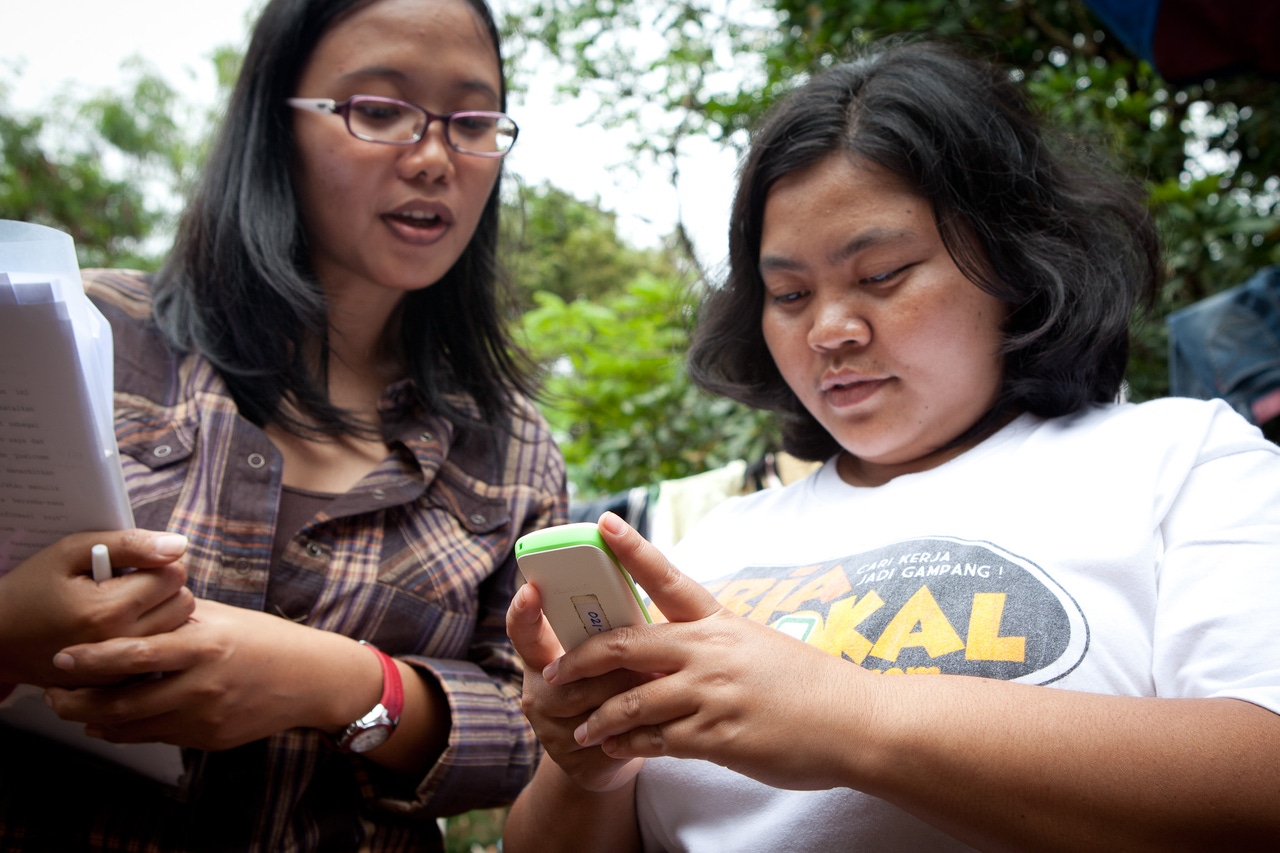Mobile for everyoneMobile for everyone
Operators are under increasing pressure to bring coverage even to the remotest areas, and with mobile technologies penetrating almost every aspect of modern life, access to or the lack of a network connection can have profound social implications.
November 13, 2014

Last year on a family trip to Cornwall I kept myself entertained in the car with my mobile phone – until I lost the connection, which was probably not loo long after we got off the M4. As soon as we arrived at the lovely Cornish cottage, three of us ventured out to look for a mobile connection, which, as we discovered, could be achieved by climbing a large rock on the peninsula and then performing an impression of the Statue of Liberty.
The problem was that with the wind blowing from the sea, it was difficult to hear anything even if you managed to make a phone call. This is not a unique situation. Up and down the country, as well as in continental Europe there are numerous areas where getting a mobile connection is often challenging to say the least.
Solving the issue of not being able to get a mobile connection in rural areas is of course a much bigger issue than tourists not being able to check Facebook and email at all times while enjoying their country holidays. A lot of people have to deal with a bad connection or no connection at all on a daily basis, and in the heavily tech-reliant world we live in, this can be detrimental.
“Some parts of rural Britain have just one or two of the mobile phone networks available, or in some cases none at all, which means those living there are left without any wireless service,” says John Spindler, VP Product Management at TE Connectivity. “Mobile operators are therefore under growing pressure to provide ubiquitous 4G network services, while at the same time keeping costs in check. A big problem is that operators will need to increase the number of cell sites by 300-500 per cent in order to support 4G services, thereby dramatically increasing their costs.”
Recently, the UK Culture, Media and Sport Minister Sajid Javid announced that he wants to introduce a national roaming scheme, which would mean operators sharing their networks to ensure better customer service and more widely available mobile connection as people would be able to switch to a different network as and when needed. However, many operators have strongly rejected these plans.
“By joining forces with other operators and sharing mobile infrastructure using small cell architecture technology, specifically Distributed Antenna Systems (DAS), operators extend their coverage and capacity into areas they normally couldn’t reach, and they can do so at far lower cost than deploying traditional macrocells,” John Spindler says.
Network sharing would certainly make mobile broadband more available in many more areas than it currently is but it would still not solve the problem entirely. According to statistics from a wireless networks performance and coverage data sourcing company OpenSignal, which has analysed data from 40,000 users of the service, the average mobile user has no connection for 15% of the time and this would be reduced ‘only’ by half through network sharing as network blackspots would still exist. Some in the industry have also argued that network sharing would be a disincentive for operators to invest in building new network infrastructure, especially in much needed rural areas.
John Spindler, however, says that network sharing is not only useful for remote areas, but for urban vicinities too. “It also makes sense to do this in towns and cities where there simply isn’t room to add more infrastructure. As expectations of operators’ services continue to rise, both within and outside rural areas, it’s likely the benefits of sharing infrastructure will increasingly appeal to operators- and their purse strings,” he says.
Looking at the issue of not having access to a broadband connection in a global context, the ITU (International Telecommunication Union) reckons over 60% of the world’s population still don’t have internet access. This lack of access has created a need for technology innovation designed to help communities tackle social problems in new ways.
Dan Sutch, Head of Development Research at Nominet Trust, a UK-based organisation funding social technology ventures, says: “There are so many examples of mobile technology helping to solve huge challenges. The ubiquity, connectivity and power of mobile devices means they provide an incredible opportunity to address an issue in ways unimaginable only a few years ago.”
One of the examples Sutch is referring to is WeFarm, a solution developed by the Café Direct Producers’ Foundation, which allows users across continents to share information and knowledge via local SMS messaging. WeFarm then uses the internet and its own peer translation system to share the messages again through SMS with other members, thus avoiding any extra charges associated with international texting.
To use the application only a mobile phone is required, even the most basic kind works. WeFarm is currently used by about 250,000 smallholder tea, coffee and cocoa farmers across East Africa, Latin America and Asia. “Supporting some of the poorest farmers, this tool helps them to be more productive by learning from others – something that would be impossible without the connectivity of the internet,” says Such. “These farmers don’t have access to the web but they do own mobile phones. WeFarm gathers their SMS messages sending them online to farmers across the world, who receive them as local SMSs.”
In Jakarta, the capital of Indonesia, one of world’s most populous nations, mobile technology has been utilised to enable residents to set up new businesses through a programme called Mobile Microfranchising, a venture set up in cooperation with mobile chip vendor Qualcomm’s social initiative Wireless Reach, as well as US-headquartered charity organisation Grameen Foundation and Jakartan social enterprise Ruma. Despite being one of the poorest countries in the world, the number of mobile subscriptions in Indonesia is higher than the size of the population, and although some of the subscriptions probably are so called one-off subscriptions as operators try to entice new customers by giving out free SIM cards with a small amount of credit on them, the fact remains that almost everyone in Jakarta has a mobile phone. “The simple fact that mobile subscriptions exceed the total population size made mobile phones the perfect solution,” says Shawn Covell, VP of Government Affairs at Qualcomm.
The Mobile Microfranchising programme allows small-business entrepreneurs to purchase a pre-packaged mobile phone kit through a microfinance loan and then resell the airtime minutes to others in their communities. “Mobile technologies are literally breaking down barriers: geographic, socio-economic, educational and cultural, that have historically obstructed progress in developing countries,” says Covell. “To illustrate, through a smartphone and an internet connection, children in sub-Saharan Africa can access the same educational materials as students in New York City.”
A related initiative by Qualcomm Wireless Reach, the Application Laboratory (AppLab) has established a multi-tier suite of data services to boost the entrepreneurs’ income, most of them women, while the involvement of Ruma has ensured long-term support for them. The idea is that the mobile phone works as a platform for additional applications and services, launched through a mass-market channel, which directly supports the entrepreneurs. “The Mobile Microfranchising initiative, and later AppLab, saw mobile technologies as an opportunity for rural entrepreneurs to access high-value social applications and increase their income,” says Covell. “There are many technologies available today to connect people, but we think advanced wireless technologies are the best solution for connectivity for remote and rural geographies because they are fast, affordable and prevalent.”
These are just some examples of technology companies getting involved in creating social change. Qatar-based telco Ooredoo Group has been running mobile health clinics in Indonesia, offering free advice and services, including medical checks, nutritional advice and vitamin distribution. So far the clinics, which are run in partnership with the Leo Messi Foundation, have seen some 600,000 people in Indonesia, and the plan is that the programme reach two million people across Indonesia, Myanmar, Tunisia and Algeria by 2016. H.E. Sheikh Abdullah Bin Mohammed Bin Saud Al Thani, Chairman of Ooredoo Group said: “These mobile health clinics are an investment in the future of the communities we serve.”
In a world more connected than ever, it is important to help those who are currently not enjoying all the benefits of technology. On the other side of the coin there is of course the benefit for operators and vendors in doing so as these communities are the future target audience of new services and products. With the emergence of the low-cost smartphones such as the Mozilla Firefox device, it is clear technology is more available even at very low price-points, but to enable real progress all the pieces of the jigsaw need to fall into the right place: infrastructure, price, knowledge and people’s ability to invest in and learn how to use devices.
“Even with the launch of devices such as Mozilla’s £20 phone there’s still lots to do to ensure everyone who wants access, has the opportunity to have a voice, to have the tools to create, share and speak up. Challenges that still need to be addressed include tackling the digital divide, accessibility and how easy it is for everyone to use these tools,” says Dan Sutch from Nominet Trust.
Read more about:
DiscussionAbout the Author
You May Also Like










.png?width=300&auto=webp&quality=80&disable=upscale)


_1.jpg?width=300&auto=webp&quality=80&disable=upscale)